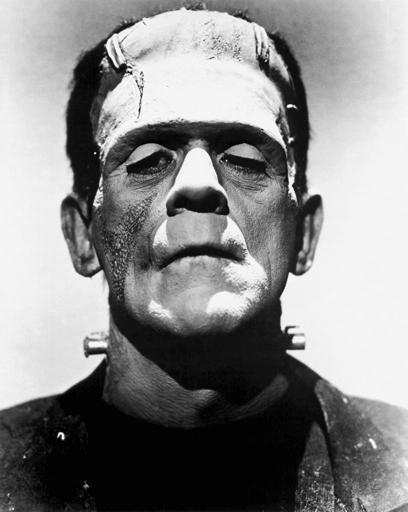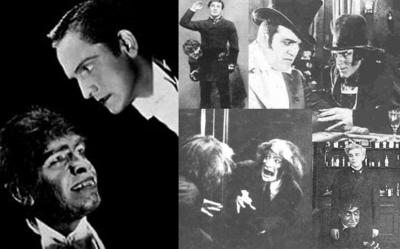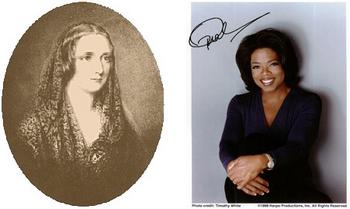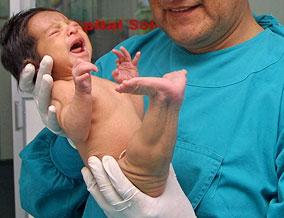« March 2006 | Main | May 2006 »
April 20, 2006
The Horror, the horror! A monstrous text!
I've been really struggling with this thesis... I have about 5 or 6 different 'starts' and other bits and pieces of texts. Everytime I feel like I know how to approach it I get some way into, a couple of thousand words if I'm lucky, and I begin to get cold feet. In my mind I project what would come... how the entire thesis would need to be played out if I was to continue in that vein... and I begin to feel sick, literally... like I've just wasted another day, or another week, writing myself down a dead end road.
I've always had in mind a romantic vision of my thesis at the end... a cohesive grand narrative... flowing from contentious/disruptive beginning to irreverent and final end. I can't describe the anxiety that comes with the realisation that this might not be going to happen. I've spent most of the last week in a state of paralysis! Not knowing how to proceed. Stuck. Not sleeping... getting worse.
Then, riding over the Williamsburg bridge lastnight (always good for a think!), and feeling down about leaving New York, it occurred to me that, if nothing else, this was all quite appropriate! Lots of starts with no finishes, pot shots,... failure and frustration. The story of my masters. There is no cohesive grand narrative, only observations, a fragmented but loosely stiched collection of realisations about research, about graphic design, about philosophy, about creative practice, about relationships...
The 'cohesive grand narrative' I have had in mind since the beginning. What I failed to do then was modify the expected outcome based on what I've actually learnt about research and about design!? Or maybe, to be more precise, what I've learnt about 'myself' as a researcher and a designer. My thesis isn't working because I'm trying to dress a monster in academic narrative. A beginning, a middle, and an end... hypothesis, experiment, conclusion... that's not how it happened, and if anything my actual research - the projects, the failure - testifies to a certain value in working in a mode that is almost oppositional to that model.
My thesis then might also be monstrous!? This realisation comes as a huge relief to me! Already I feel like I have a bunch of texts I can use/reuse, and I feel like I can 'move' about freely. But not only does this give my thesis the kick in the pants it needed, it also tells me something more about the monster... or my relationship with the idea, proof that, for me, the metaphor is indeed generative... that it acts as a foil to my often overwhelming anxiety and pessimism... and that it opens up and promotes a sense possibility from within a sense of failure... that it might actually render faliure very generative?
What do I mean by a monstrous text? Just quickly... I want to be able to write about things inside of and outside of my research. I want to be able to write about other people; Dylan, Kaleb, Stuart, Lisa, and maybe certain students. I want to be able to write in whatever style seems right to me at the time. I want to be able to be highly personal and anecdotal one day, and critical and academic the next. I want to be able to interview myself. I want to be able to write a horror story, a self-help manual, a glossary, and a letter to my girlfriend. And I want to be able to write when and where it feels right... to be able to stitch this all together at the end... like Dr Frankenstein - the monster is an exercise in editing!
Posted by Luke Wood at 02:51 AM | Comments (4)
April 15, 2006
The Monstrosity of (Auto) Biography
That my research, and indeed that 'practice-led' research in general, tends toward auto-biography.
That Stuart Bailey's text 'On Biography' in DDD 11 points to a space, "a gap between two poles" from which the character materializes, "spectre-like".
That this text of his relates back to something Robin Kinross wrote in DDD 2 called 'The Uses of Failure'.
That SB is currently interviewing RK.
That maybe I interviewed Dylan in search for relief from talking about myself.
That when I was interviewing Dylan I wanted it to be more 'conversational', and that in doing so I ended up talking about myself.
That this made/makes me uncomfortable.
That at one point I claimed to be seeking discomfort.
That this discomfort (a la Bailey/Kinross) might be useful... where the (my) spectre materializes?
That it's peculiar to seek out one's own ghost.
That Dr Jekyll's quest for improvement through self-awareness went horribly wrong.
Posted by Luke Wood at 03:35 AM
April 06, 2006
Mary Shelley on invention (with hybrid reference to Oprah Winfrey)...
"Every thing must have a beginning, to speak in Sanchean phrase; and that beginning must be linked to something that went before. The Hindoos give the world an elephant to support it, but they make the elephant stand upon a tortoise. Invention, it must be humbly admitted, does not consist in creating out of the void, but out of chaos; the materials must, in the first place, be afforded: it can give form to dark, shapeless substances, but cannot bring into being the substance itself. In all matters of discovery and invention, even of those that appertain to the imagination, we are continually reminded of the story of Columbus and his egg. Invention consists in the capacity of seizing on the capabilities of a subject, and in the power of moulding and fashioning ideas suggested to it."
From the introduction to Frankenstein... complete annotated text is reproduced online here.
I liked the idea that I could write this thesis in a monstrous style, half horror story - half self-help manual... kind of, Mary Shelley meets Oprah Winfrey... prophetic and evangelical, both romantic and spooky. But I'm not sure I'm a good enough writer to do that. (Oprah's website is worth checking out by the way)
One thing is clear though, the writing and production of the thesis should be seen as a 'project' within the research.
Posted by Luke Wood at 03:58 AM | Comments (1)
April 04, 2006
Armand Leroi on Mutants (and Oprah's freak show)...
As an occasional cure for homsickness I log onto National Radio. Recently I heard an interview with Armand Leroi talking about his latest book Mutants. Armand is an evolutionary biologist with a specific interest in genetic deviation. What was most interesting to me was how what he talked about was more broadly applicable to cultural attitudes about deformity and perfection. Armand talked about how important mutations are right now in terms of pointing us to what specific genes are actually supposed to do. He spoke about how we're currently in a period of renewed interest in mutation and abnormality, but how that interest was one based on the correction, or normalisation, of such 'flaws'.
Of course he talked about the history of mutation, how early on misformed babies were assumed to be monsters or demons, and then later the freak shows of the Victorian Era (The Elephant Man in particular), which were eventually - for obvious moral reasons - what drove general interest in mutation underground.
In my thesis I want to try and negotiate/articulate my disengagement with the fundamental description of design as 'improvement'. To develop a critique of the 'cult of purity' that is pervasive in the discipline, and to justify or locate a position other to that. More than any other creative practice, I think, design (broadly) tries to base itself on what it thinks society wants/needs. It is therefore more highly susceptible to the general perceptions of the culture it plays for.
I've been watching the TV series Carnivale, which follows a travelling circus around the southwest United States during the Great Depression. Of course they have a 'Freak Show', and in one episode 'Ben' is sent out to locate 'The Lobster Boy'. Last year I watched Tod Browning's Freaks, and I have to admit that, like Diane Arbus, I've become midly fascinated by the alterations that an error in gene reproduction can cause on a human body. Following the Diane Arbus lead I've heard stories of illegal 'underground' freakshows existing in New York City well into the 1960s... but I haven't been able to find any here now. Where did they go? Is it just unethical, or don't we have mutants anymore? Are we that infected by the desire for normality that we've done away with such abnormality through science and medical technology? Yeah, kind of... Armand explains.
And then this! The Mermaid Girl on Oprah Winfrey. Is Oprah wanting to get the 'ol freak show started again? Naming the unfortunate child 'The Mermaid Girl' (a la 'The Lobster Boy' and 'The Elephant Man') would certainly suggest so, although in true Oprah fashion the child is referred to as a 'miracle'. I went to Oprah's site because I was interested in the aesthetics of 'self-help'... to find this there certainly makes me think I'm onto something...
although when I told Anna I'd been listening the interview with Armand Leroi, she said she'd just been sharing a cab with him in Wellington! Spooky serendipity... or a sign?
Posted by Luke Wood at 04:46 AM | Comments (1)



